 W
WRobert "Bob" Wayne Allard was an American plant breeder and plant population geneticist who is widely regarded as one of the leading plant population geneticists of the 20th century. Allard became Chair of the Genetics Department at University of California, Davis in 1967; he was elected to the National Academy of Sciences in 1973, and was awarded the DeKalb-Pfizer Distinguished Career Award and the Crop Science Science of America Award. He was honored as the Nilsson-Ehle Lecturer of the Mendelian Society of Sweden and as the Wilhelmine Key lecturer of the American Genetic Association. He also served as president of the Genetics Society of America, the American Genetic Association and the American Society of Naturalists.
 W
WGuido Barbujani is an Italian population geneticist, evolutionist and literary author born in Adria, who has worked with the State University of New York at Stony Brook (NY), University of Padua, and University of Bologna. He has taught at the University of Ferrara since 1996.
 W
WLuigi Luca Cavalli-Sforza was an Italian geneticist. He was a population geneticist who taught at the University of Parma, the University of Pavia and then at Stanford University.
 W
WRanajit Chakraborty was a human and population geneticist. At the time of his death, he was Director of the Center for Computational Genomics at the Institute of Applied Genetics and Professor in the Department of Forensic and Investigative Genetics at the University of North Texas Health Science Center in Fort Worth, Texas. His scientific contributions include studies in human genetics, population genetics, genetic epidemiology, statistical genetics, and forensic genetics.
 W
WSergei Sergeevich Chetverikov was one of the early contributors to the development of the field of genetics. His research showed how early genetic theories applied to natural populations, and has therefore contributed towards the modern synthesis of evolutionary theory.
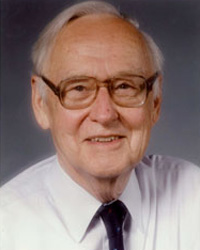 W
WJames Franklin Crow was Professor Emeritus of Genetics at the University of Wisconsin–Madison and a prominent population geneticist whose career spanned from the modern synthesis to the genomic era.
 W
WAnthony William Fairbank Edwards, FRS is a British statistician, geneticist and evolutionary biologist. He is the son of the surgeon Harold C. Edwards, and brother of medical geneticist John H. Edwards. He has sometimes been called "Fisher's Edwards" to distinguish him from his brother, because he was mentored by Ronald Fisher.
 W
WJoseph "Joe" Felsenstein is a professor in the Departments of Genome Sciences and Biology and Adjunct Professor in the Departments of Computer Science and Statistics at the University of Washington in Seattle. He is best known for his work on phylogenetic inference, and is the author of Inferring Phylogenies, and principal author and distributor of the package of phylogenetic inference programs called PHYLIP. Closely related to his work on phylogenetic inference is his introduction of methods for making statistically independent comparisons using phylogenies.
 W
WSir Ronald Aylmer Fisher was a British statistician, geneticist, and professor. For his work in statistics, he has been described as "a genius who almost single-handedly created the foundations for modern statistical science" and "the single most important figure in 20th century statistics". In genetics, his work used mathematics to combine Mendelian genetics and natural selection; this contributed to the revival of Darwinism in the early 20th-century revision of the theory of evolution known as the modern synthesis. For his contributions to biology, Fisher has been called "the greatest of Darwin’s successors".
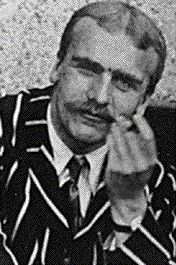 W
WJohn Burdon Sanderson Haldane, nicknamed "Jack" or "JBS", was a British-Indian scientist known for his works in physiology, genetics, evolutionary biology, and mathematics. With innovative use of statistics in biology, he was one of the founders of neo-Darwinism. He was a noted geneticist and physiologist.
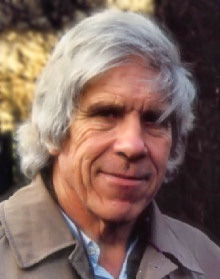 W
WWilliam Donald Hamilton, FRS was an English evolutionary biologist, widely recognised as one of the most significant evolutionary theorists of the 20th century.
 W
WGodfrey Harold Hardy was an English mathematician, known for his achievements in number theory and mathematical analysis. In biology, he is known for the Hardy–Weinberg principle, a basic principle of population genetics.
 W
WMotoo Kimura was a Japanese biologist best known for introducing the neutral theory of molecular evolution in 1968. He became one of the most influential theoretical population geneticists. He is remembered in genetics for his innovative use of diffusion equations to calculate the probability of fixation of beneficial, deleterious, or neutral alleles. Combining theoretical population genetics with molecular evolution data, he also developed the neutral theory of molecular evolution in which genetic drift is the main force changing allele frequencies. James F. Crow, himself a renowned population geneticist, considered Kimura to be one of the two greatest evolutionary geneticists, along with Gustave Malécot, after the great trio of the modern synthesis, Ronald Fisher, J. B. S. Haldane and Sewall Wright.
 W
WJohn Maynard Smith was a British theoretical and mathematical evolutionary biologist and geneticist. Originally an aeronautical engineer during the Second World War, he took a second degree in genetics under the well-known biologist J. B. S. Haldane. Maynard Smith was instrumental in the application of game theory to evolution with George R. Price, and theorised on other problems such as the evolution of sex and signalling theory.
 W
WGilean Alistair Tristram McVean is a professor of statistical genetics at the University of Oxford, director of the Big Data Institute, fellow of Linacre College, Oxford and co-founder and director of Genomics plc. He also co-chaired the 1000 Genomes Project analysis group.
 W
WMasatoshi Nei is a Japanese-born American evolutionary biologist currently affiliated with the Department of Biology at Temple University as a Carnell Professor. He was, until recently, Evan Pugh Professor of Biology at Pennsylvania State University and Director of the Institute of Molecular Evolutionary Genetics; he was there from 1990 to 2015.
 W
WTomoko Ohta is a Japanese scientist working on population genetics/molecular evolution. She and Richard Lewontin were jointly awarded the Crafoord Prize for 2015 "for their pioneering analyses and fundamental contributions to the understanding of genetic polymorphism".
 W
WSvante Pääbo is a Swedish geneticist specialising in the field of evolutionary genetics. As one of the founders of paleogenetics, he has worked extensively on the neanderthal genome. Since 1997, he has been director of the Department of Genetics at the Max Planck Institute for Evolutionary Anthropology in Leipzig, Germany.
 W
WGeorge Robert Price was an American population geneticist.
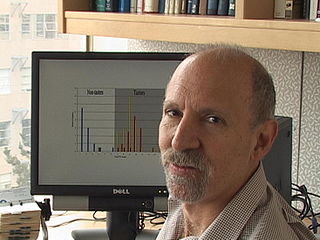 W
WNeil Risch is an American human geneticist and professor at the University of California, San Francisco (UCSF). Risch is the Lamond Family Foundation Distinguished Professor in Human Genetics and Director of the Institute for Human Genetics and Professor of Epidemiology and Biostatistics at UCSF.
 W
WMatthew Stephens is a Bayesian statistician and professor in the departments of Human Genetics and Statistics at the University of Chicago. He is known for the Li and Stephens model as an efficient coalescent.
 W
WGöte Wilhelm Turesson was a Swedish evolutionary botanist who made significant contributions to ecological genetics, and coined the terms ecotype and agamospecies. He conducted extensive work to demonstrate that there is a genetic basis to the differentiation of plant populations. This work stood in sharp contrast to most researchers at the time, who believed that the differentiation of plant populations was due to phenotypic plasticity. Further, Turesson came to the conclusion that differentiation of plant populations was largely driven by natural selection. His work on locally adapted plant populations led him to coin the term "ecotype" in 1922.
 W
WPeter Martin Visscher is a Dutch-born Australian geneticist who is professor and chair of Quantitative Genetics at the University of Queensland. He is also a professorial research fellow at the University of Queensland's Institute for Molecular Bioscience and an affiliate professor at their Queensland Brain Institute.
 W
WMichael J. Wade is a professor of biology at Indiana University Bloomington. Since 2009 he has been the Associate Vice Provost for Faculty and Academic Affairs at Indiana University. He is also affiliated faculty in the following departments and centers at Indiana University: Center for the Integrative Study of Animal Behavior (CISAB), the Cognitive Science Program, and the Department of History and Philosophy of Science.
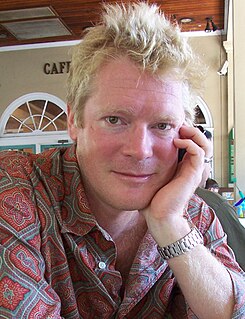 W
WRush Spencer Wells IV is an American geneticist, anthropologist, author and entrepreneur. He co-hosts The Insight podcast with Razib Khan. Wells led The Genographic Project from 2005 to 2015, as an Explorer-in-Residence at the National Geographic Society.
 W
WSewall Green Wright FRS(For) HFRSE was an American geneticist known for his influential work on evolutionary theory and also for his work on path analysis. He was a founder of population genetics alongside Ronald Fisher and J. B. S. Haldane, which was a major step in the development of the modern synthesis combining genetics with evolution. He discovered the inbreeding coefficient and methods of computing it in pedigree animals. He extended this work to populations, computing the amount of inbreeding between members of populations as a result of random genetic drift, and along with Fisher he pioneered methods for computing the distribution of gene frequencies among populations as a result of the interaction of natural selection, mutation, migration and genetic drift. Wright also made major contributions to mammalian and biochemical genetics.